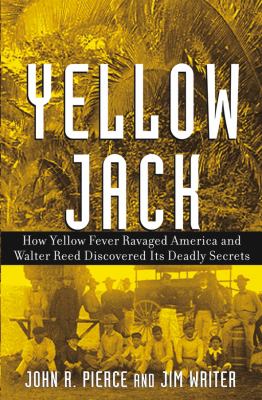
Book
|
Yellow jack : how yellow fever ravaged America and Walter Reed discovered its deadly secrets
Copies
2 Total copies, 2 Copies are in,
0 Copies are out.
Title
Yellow jack : how yellow fever ravaged America and Walter Reed discovered its deadly secrets
Call No
RA644.Y4 R447 2005
Subjects
Language
English
Published
Hoboken, N.J. : J. Wiley, [2005]
Publication Desc
ix, 278 pages : illustrations ;
ISBN
0471472611
alk. paper)
LCCN
2004013845
Dimensions
24 cm









